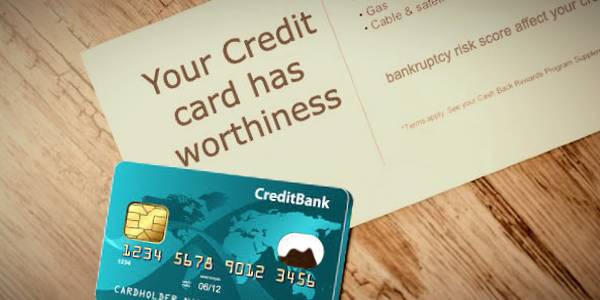We all spend time worrying about the betterment of credit score and credit report, but what we hardly care to know or assess is the importance of our bankruptcy risk score. Although in use for over the last two decades, bankruptcy risk score is still not talked about much by the consumers. However, its importance is undeniable and needs to be considered, especially if you are hunting for credit.
Bankruptcy risk score or simply bankruptcy risk is referred to as the extent of your likelihood for bankruptcy filing. Being closely tied to credit score, it simply indicates whether you have the ability to meet your existing obligations or not.
Both individuals and businesses are evaluated on the basis of the bankruptcy risk they possess, before their credit application is granted. Regardless of the type of credit you apply for, your prospective creditor would thoroughly take your bankruptcy risk into consideration.
How is the level of bankruptcy risk evaluated?
As mentioned earlier, bankruptcy score is closely tied to credit score. But unlike credit scores, you cannot obtain your bankruptcy credit score from the credit bureaus. Therefore, creditors evaluate the level of your bankruptcy risk by analyzing certain crucial aspects of your credit report meticulously:
•Primarily, they will take your credit score into account. The better the credit score, the lesser the bankruptcy risk.
•How you managed your credit in the past, especially in times financial crisis. Responsible handling of credit in the past testifies to your credit worthiness. The more credit worthy you are, the less is your bankruptcy risk.
•Whether you have followed the terms and conditions associated with the financial agreement properly or not. Creditors always prefer to establish business relations with consumers who are highly likely to abide by all the terms and conditions of the agreement.
•The creditor might also want to have a word with you personally in order to learn about the specific financial situations that you have undergone in the past. This will throw some more light on your bankruptcy risk.
A thorough look into these aspects will help your prospective creditor decide the extent of your bankruptcy risk. The investigation would also help the creditor evaluate the internal score approach to decide if you are really safe as a borrower or not.
If your bankruptcy risks are estimated to be high, the creditor is likely to demand a high interest rate in order to approve your credit application, because you will be considered a high risk debtor.
How should you minimize your bankruptcy risk?
You can’t minimize your bankruptcy risk overnight. You need to work on it the right way in order to lower it:
•Get hold of the copies of your credit report from all the credit bureaus.
•Review your credit reports thoroughly. If you find any discrepancies, do get your reports validated and verified. Also get the correct information updated on your report. Make sure you get all of it done before you apply for the credit.
•If any recent financial upheaval has added negative items to your credit report, then you should take the required measures to clear the items as soon as possible, and balance them with the reports of your on-time debt payments.
It is true that no strategy would do miracles to your credit report and bankruptcy risks. But, by carefully adhering to a prudent risk minimizing strategy, you can gradually re-establish your credit worthiness that will get you lower interests on your mortgages, credit cards and other loans.












